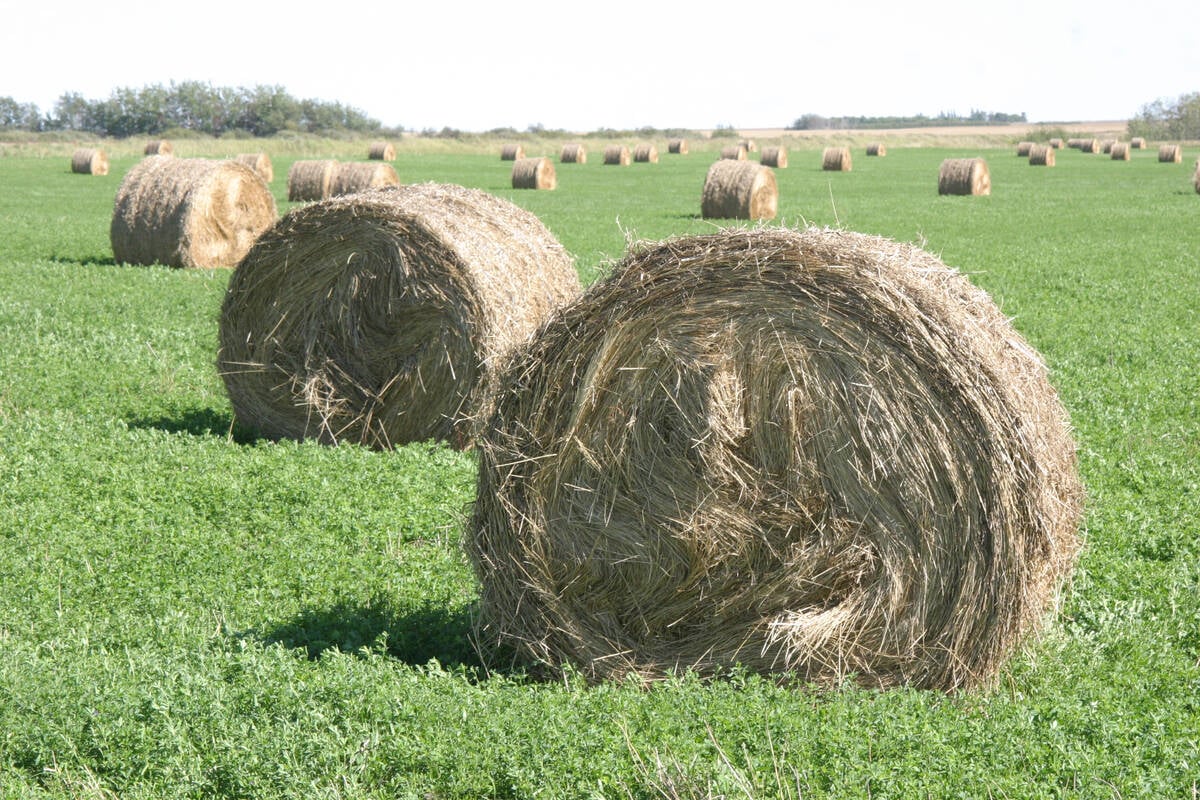Resistance to dewormers identified Officials seeking samples to study intestinal parasites and their reaction to treatment
Two University of Calgary veterinary medicine researchers are gathering information on parasite resistance to commonly used dewormers in sheep and goats.
Dr. Michel Levy said studies on four farms in 2013 found that the common parasites haemonchus, also known as the barber pole worm, and teladorsagia, another intestinal worm, have developed resistance to ivermectin (Ivomec) and fenbendazole (Safe-Guard).
However, the sample size was too small to draw conclusions, so this summer he and fellow researcher John Gilleard plan to test more Alberta farms and use the information in research grant applications to undertake an even wider study.
Read Also

Breaking down successful winter feeding into six steps
It’s that time of year when it is important to start planning for a cow herd’s winter feeding program. Here are six steps I think are necessary to consider when getting your feed tested.
A call for producers to volunteer their flocks for this year’s work has already yielded sufficient numbers, said Levy.
Flocks of at least 60 ewes are needed so that separate groups of animals can be tested for response to the two treatments, which can be compared to a control group from the same flock.
In addition to seeking and testing the two common intestinal parasites and animals’ reaction to the treatments, Levy and his team will look further.
“We’re going to try to figure out actually what are the other parasites of importance,” he said.
To do that, fresh feces must be collected from the animals and examined in the lab, where parasite eggs will be extracted and hatched to determine type.
Levy said most studies done on parasite resistance in sheep and goats have occurred in the United States, where southern states in particular show parasitic resistance to all drugs used to expel worms from livestock.
Some Alberta producers think winter conditions limit parasite problems, but that is not necessarily true, he said.
Both common worms limit production by secreting themselves in the animals’ abomasums. This affects digestion, causing weight loss.
Haemonchus survives on blood, causing anemia and even death in severely infested animals, Levy said.
Only two treatments are available in Canada.
The U.S. has a wider array, but resistance is limiting their efficacy. Parasites with resistance to one treatment may also be resistant to others in the same class.
That appears true of the fenbendazoles but not necessarily those in the same class as ivermectin, said Levy.
“It has always been a race between finding new drugs and the resistance that appears.”
Sheep are a major industry in some countries but less popular elsewhere, which has limited drug companies’ research interest in developing new treatments, he added.
“For a long time there hasn’t been any new research … developing new drugs. Now there’s two that have come on the market and they’re used in Europe.”
Levy said parasites’ ability to develop resistance means the answer to control lies in livestock management.
“Really, the issue is to still use drugs but to manage the pastures in a way that the animals don’t get infested all the time,” he said.
“The drugs have a place, but it’s within a larger idea of managing pastures.”
Levy said it would be interesting to determine the effect of harsh winters on parasite survival and to model parasite load and type relative to weather, flock type, size and climate. However, that will have to wait for another project and funding.















